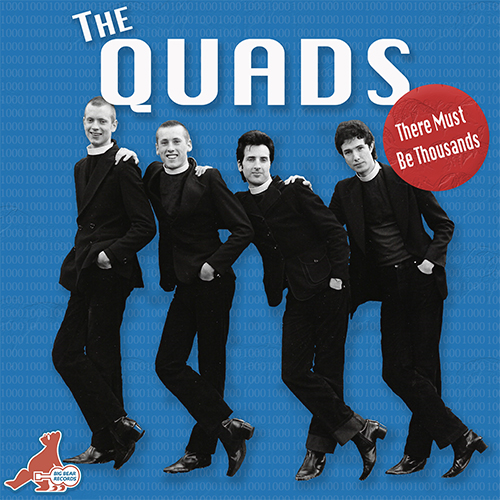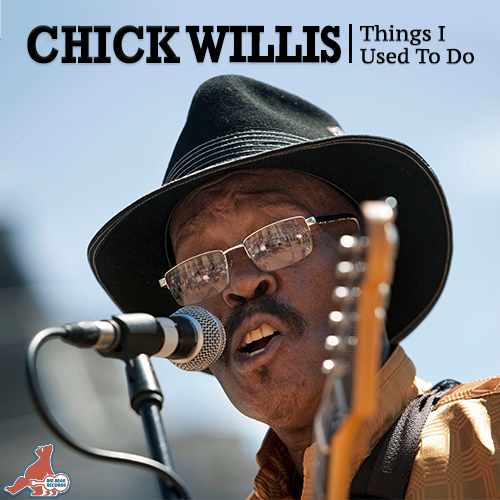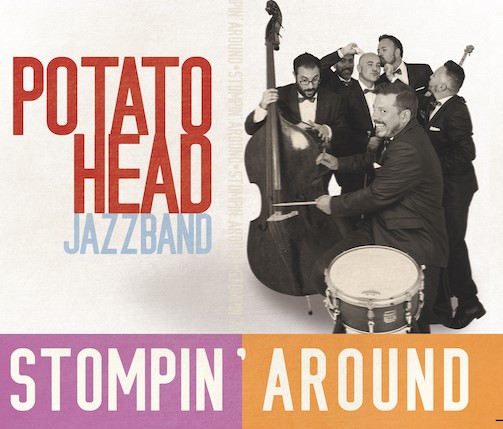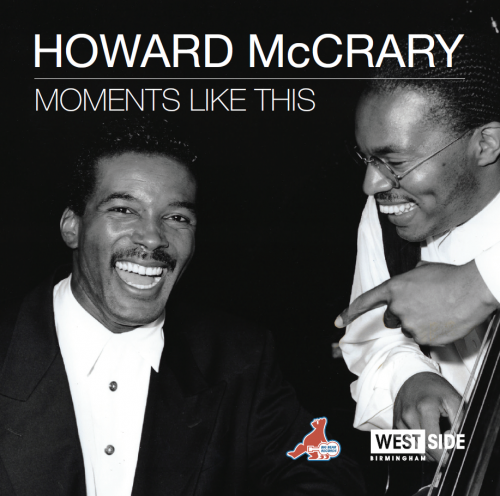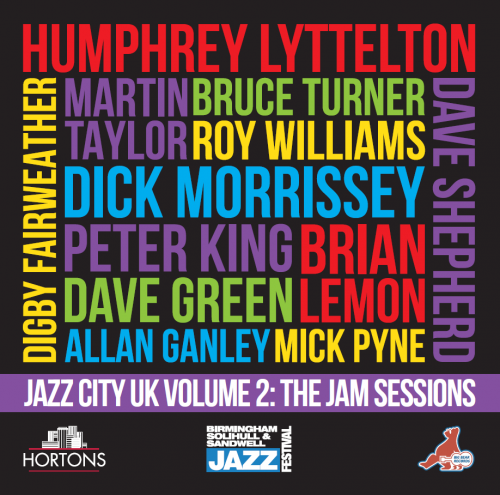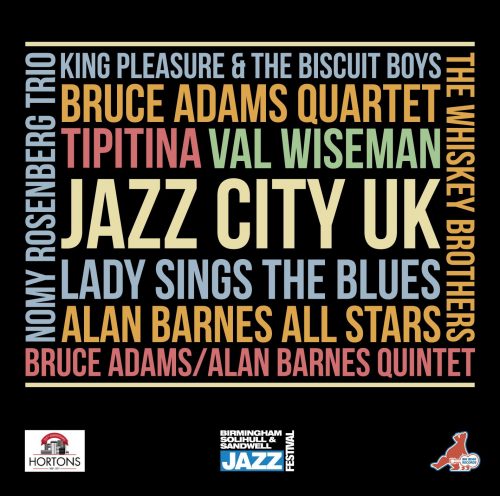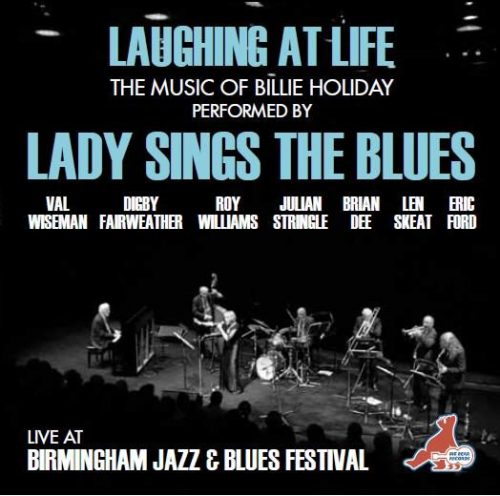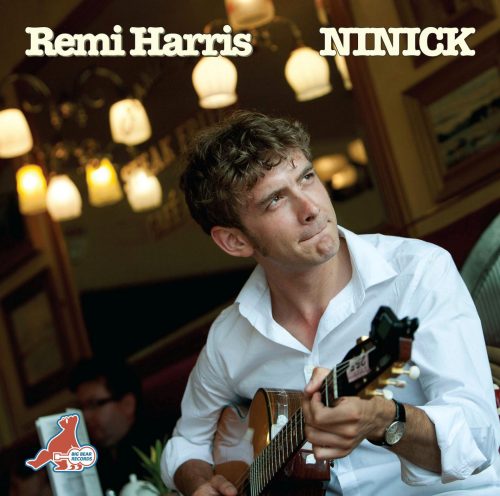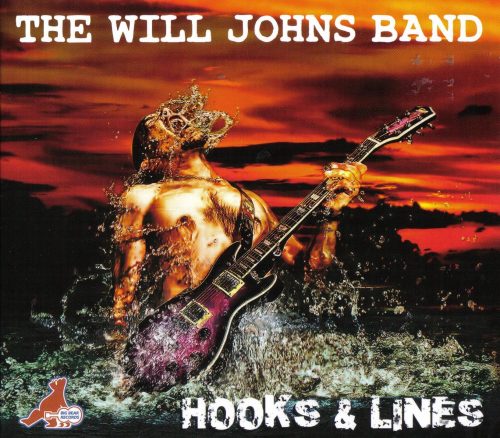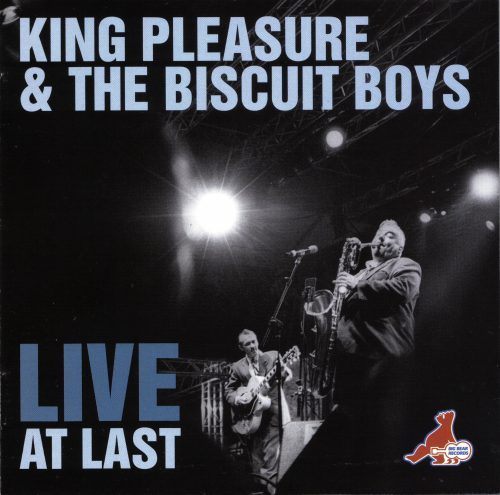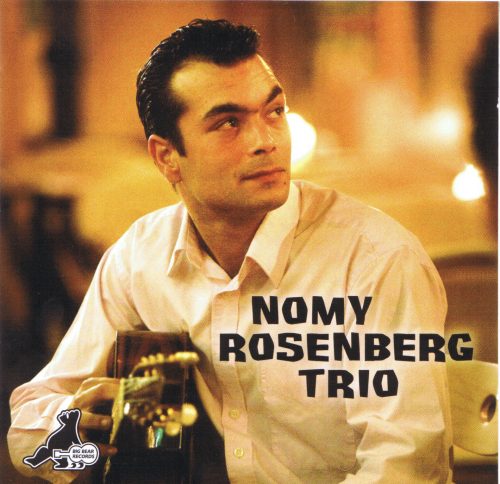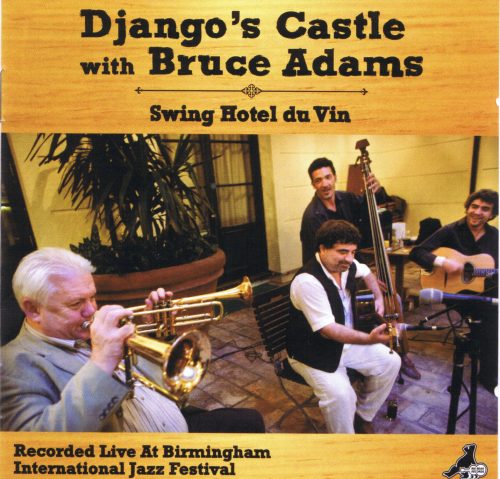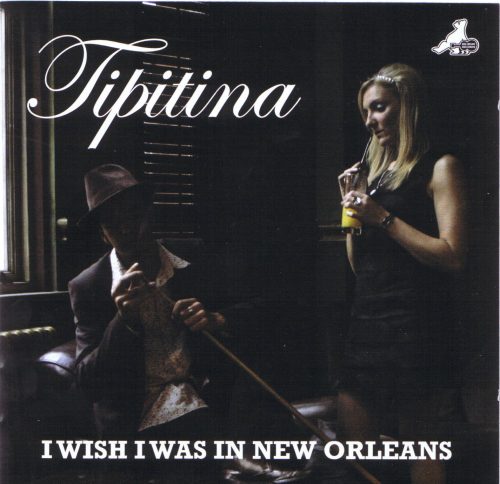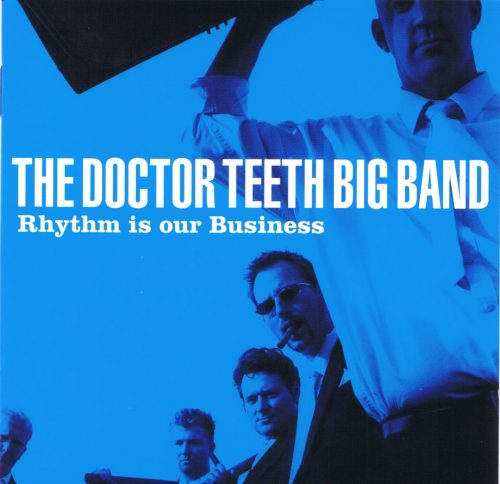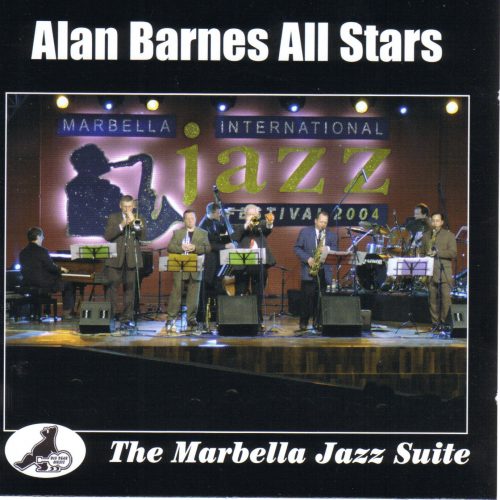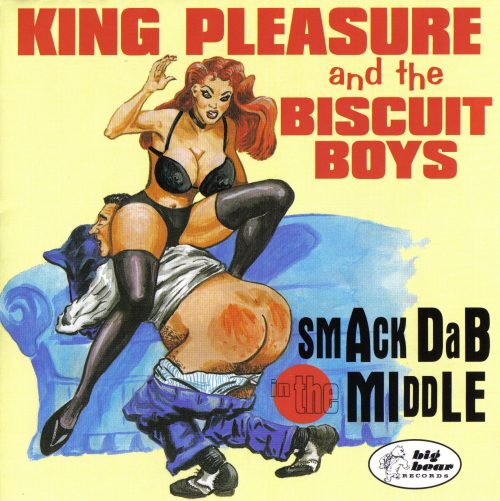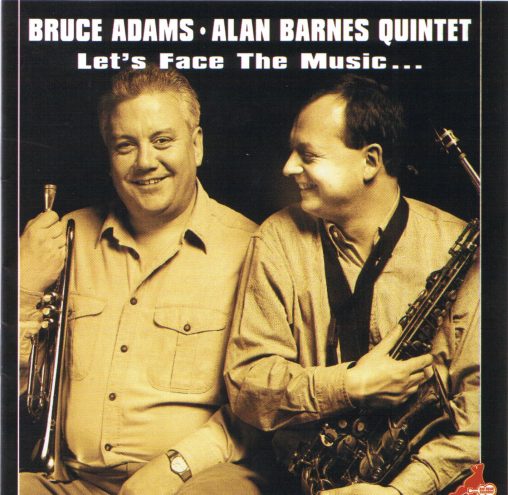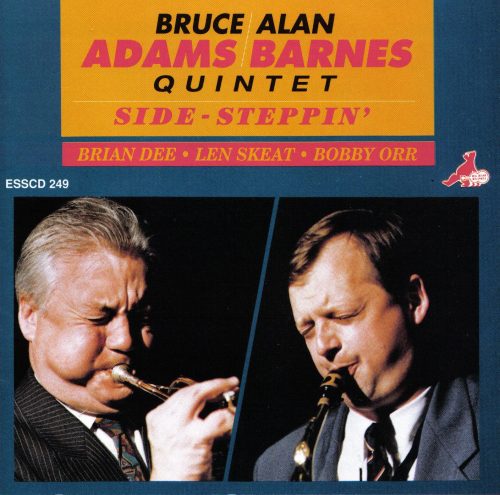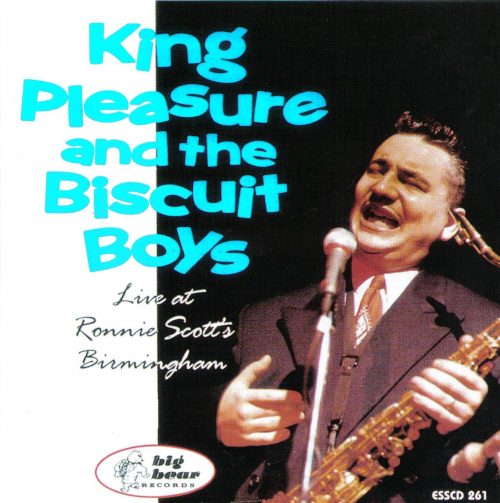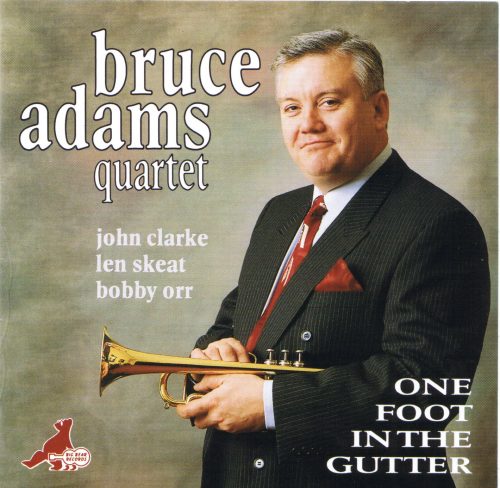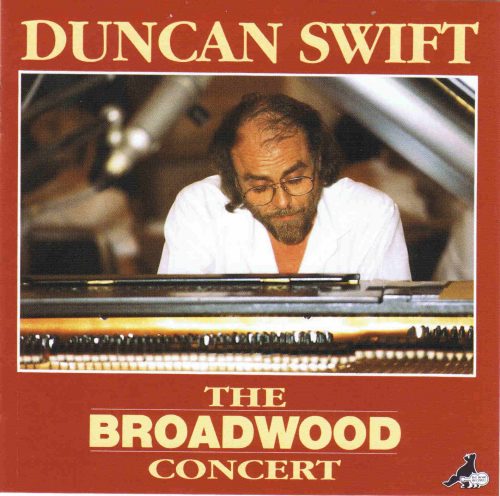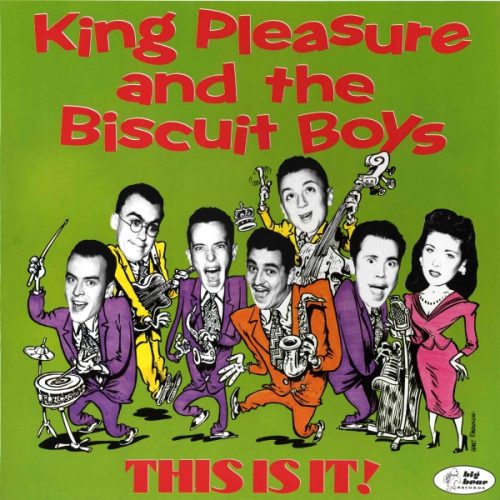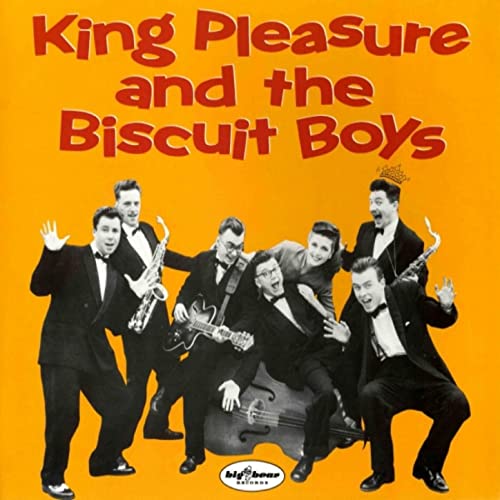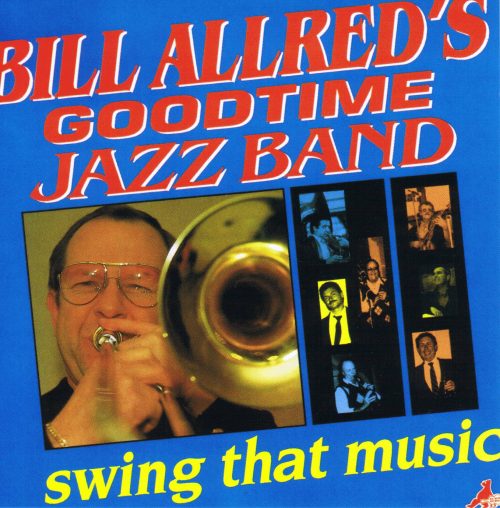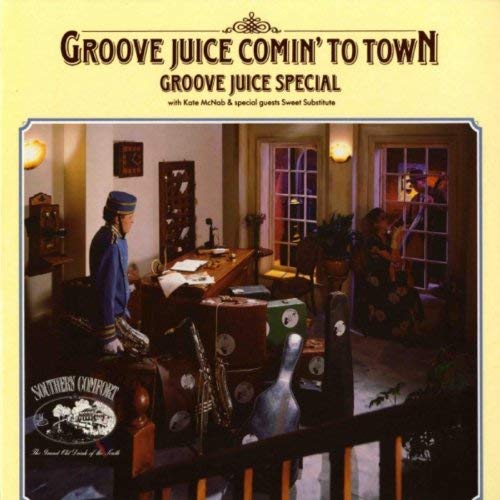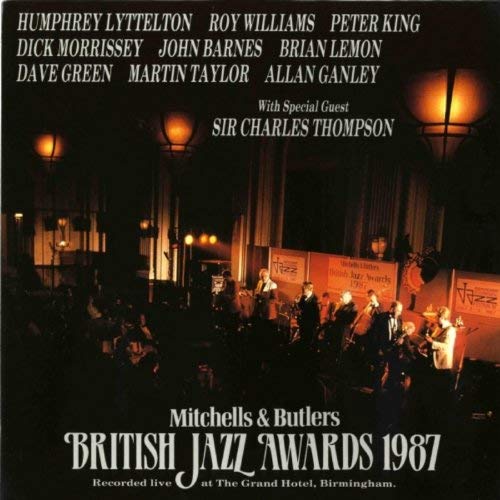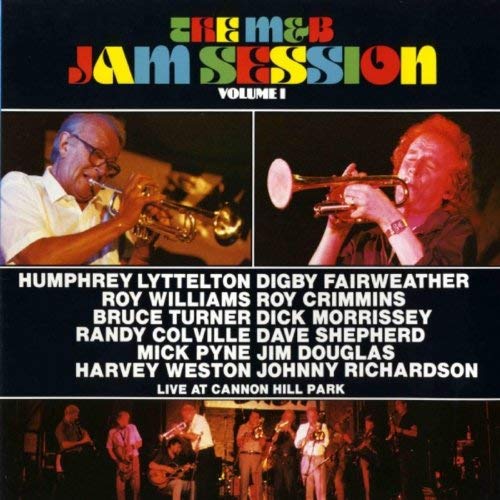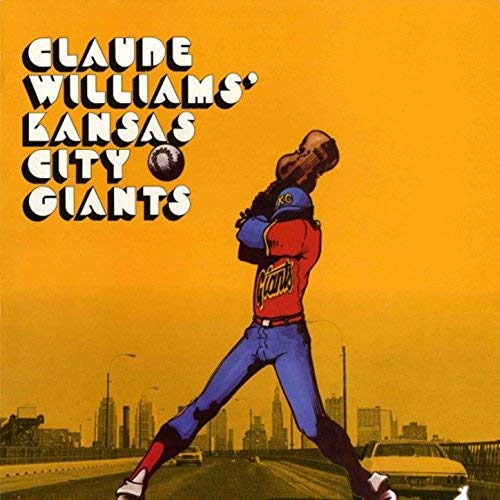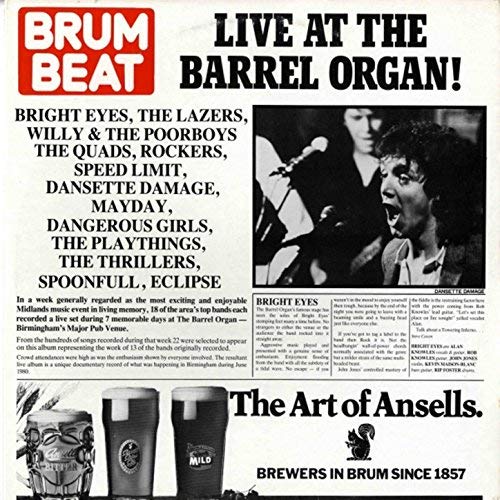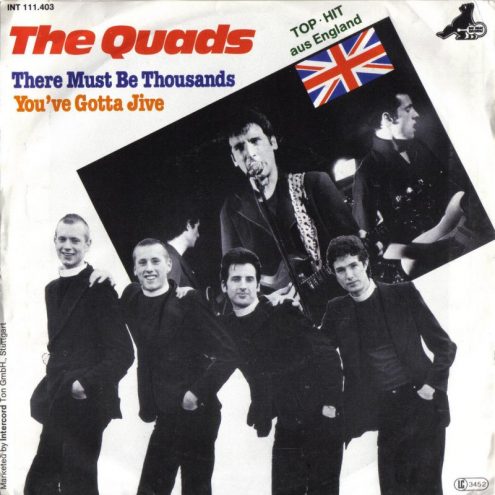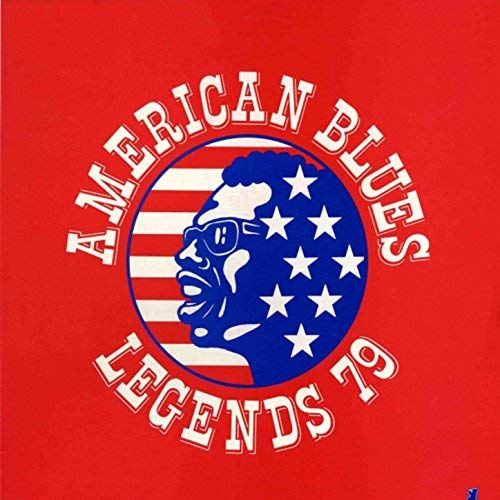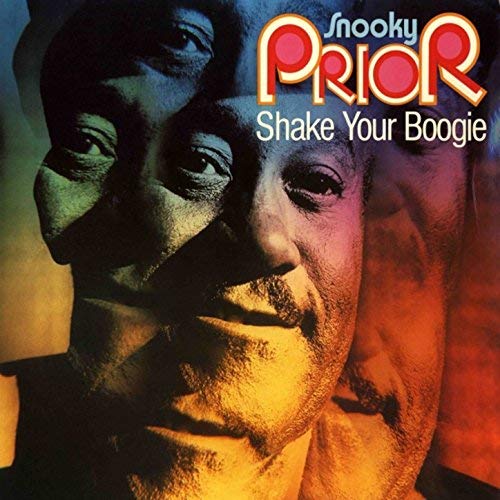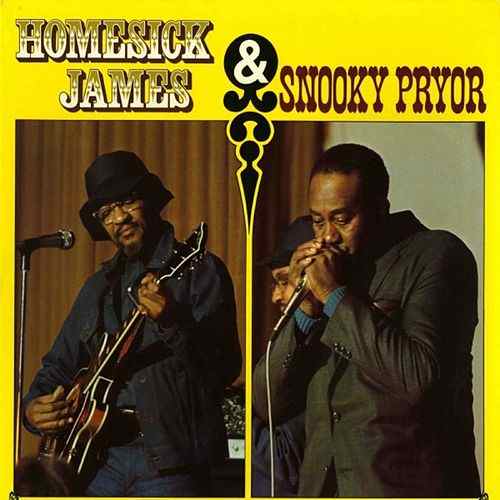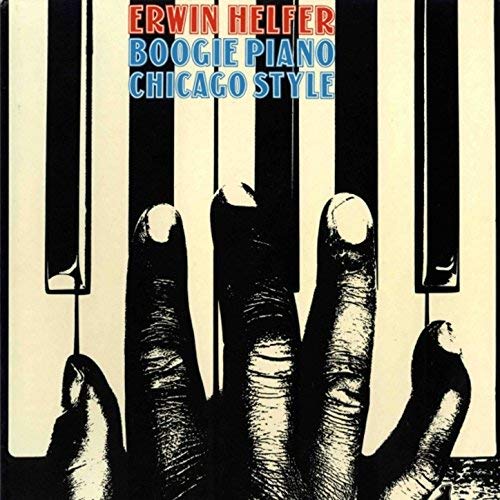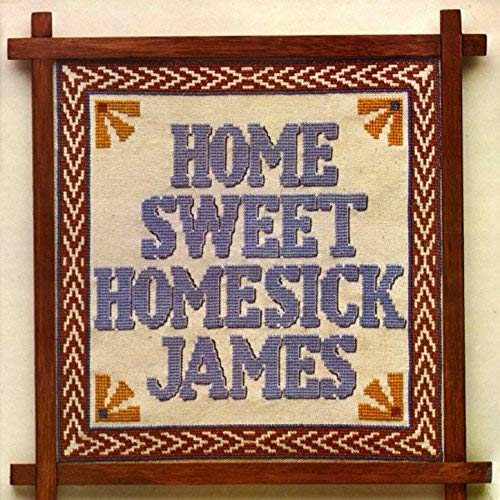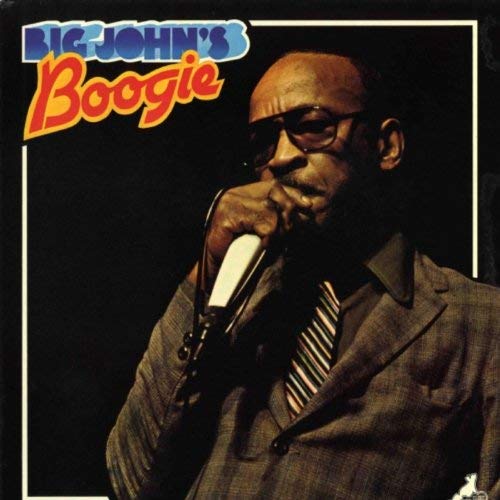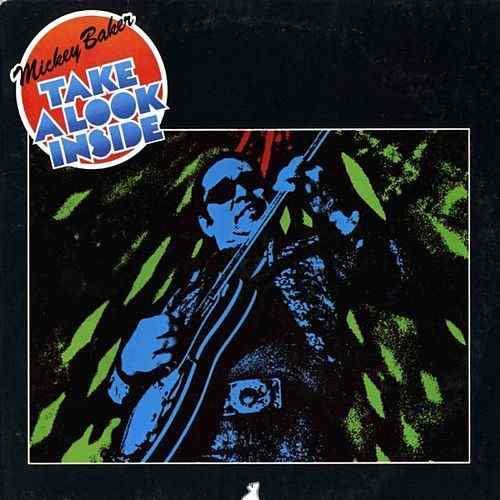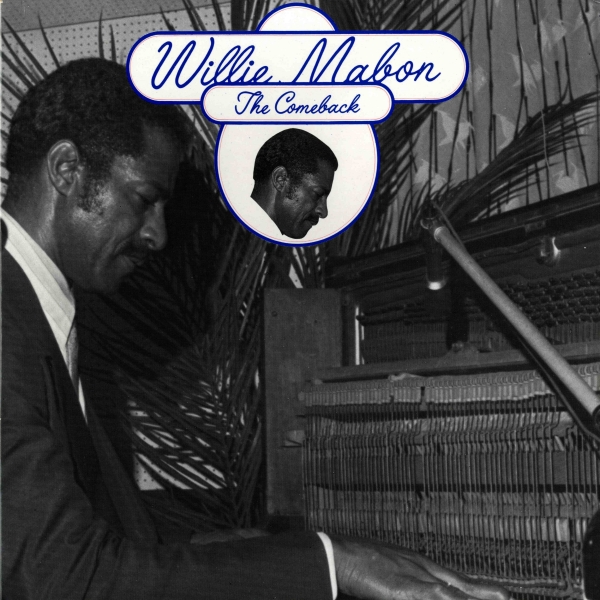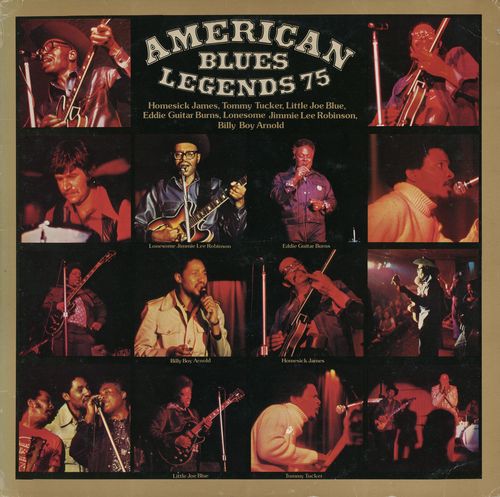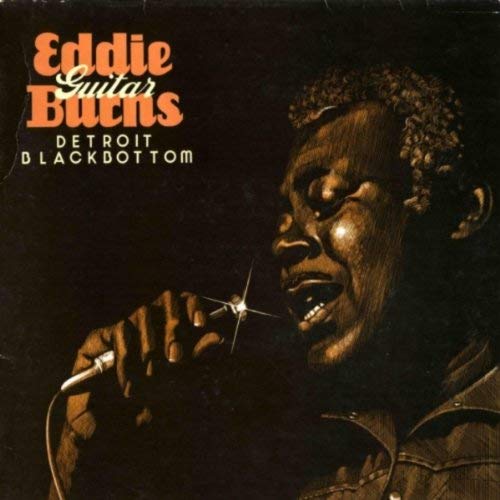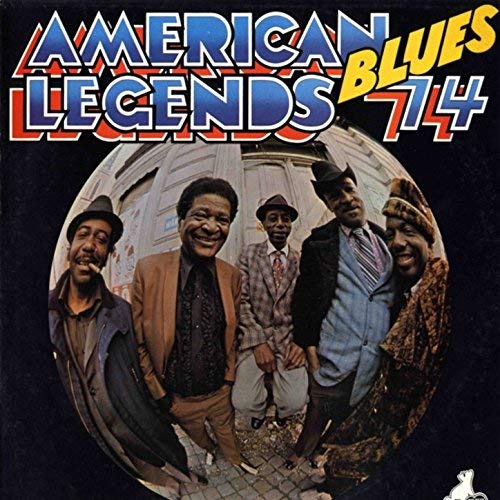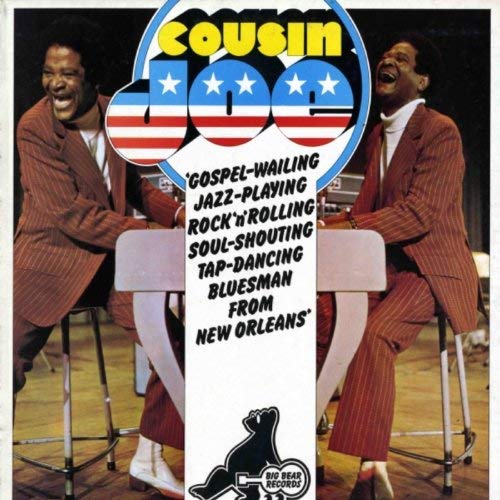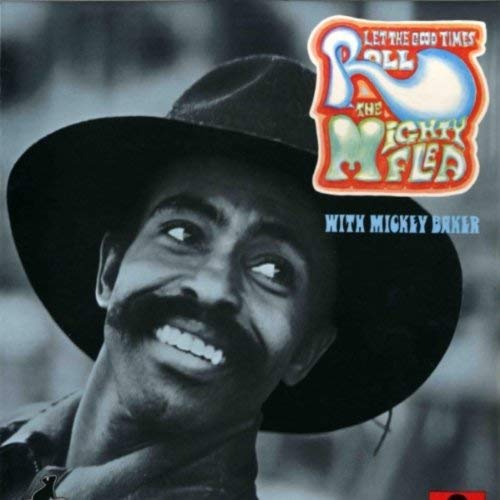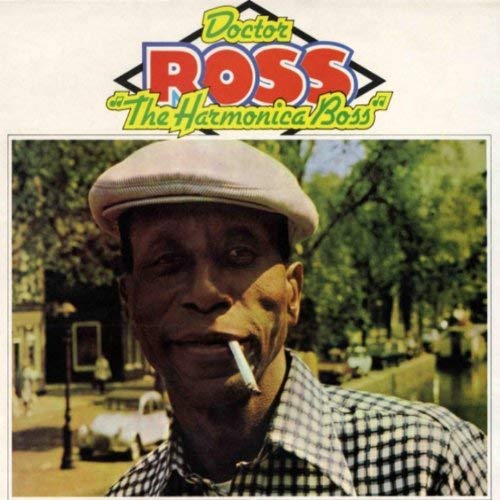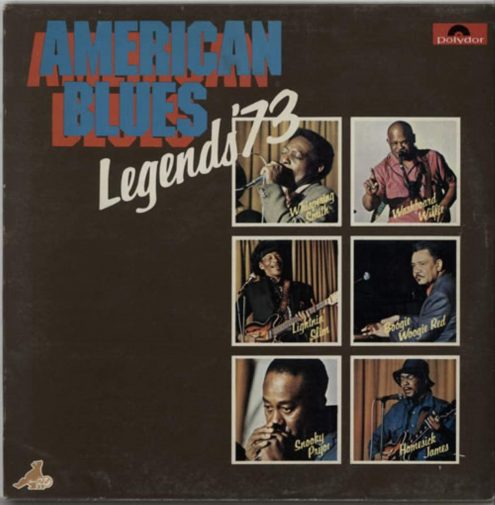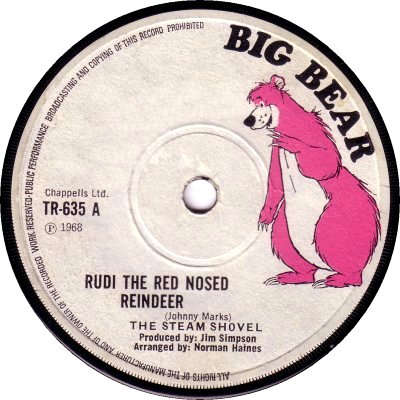THE QUADS: THERE MUST BE THOUSANDS EP BB41 ‘There Must Be Thousands,’ the debut record release of Birmingham band The…
CHICK WILLIS: THINGS I USED TO DO BEARCD59 Previously unheard material recorded by The Stoop Down man himself, Chick Willis,…
POTATO HEAD JAZZ BAND: STOMPIN’ AROUND Straight-ahead swinging Dixieland is not a music form normally associated with Southern Spain, but…
HOWARD MCCRARY: MOMENTS LIKE THIS Catalogue number BEARCD58 Howard, the ninth of ten siblings, was part of The McCrary Family…
VARIOUS ARTISTS: JAZZ CITY UK VOLUME 2 Catalogue number BEARCD57 “This is probably as close as we’ll ever get to…
VARIOUS ARTISTS: JAZZ CITY UK Catalogue number BEARCD56 Having hosted a major international Jazz Festival for 33 years, and still…
LAUGHING AT LIFE Catalogue number BEARCD54 Billie Holiday’s life-story, as it has been told and retold over the…
THE WHISKEY BROTHERS: BOTTLE UP AND GO Catalogue number BEARCD54 The Whiskey Brothers’ journey has taken them from band to…
REMI HARRIS: NINICK Catalogue number BEARCD53 You only have to hear a few bars from one of…
THE WILL JOHNS BAND: HOOKS & LINES Catalogue number BEARCD52 Look at this list of great British guitar players: Eric…
TIPITINA: TAKING CARE OF BUSINESS Catalogue number BEARCD51 A clearer demonstration of the power of live music to…
KING PLEASURE & THE BISCUIT BOYS : LIVE AT LAST Catalogue number BEARCD50 Live At Last swings it’s way through…
NOMY ROSENBERG TRIO Catalogue number BEARCD49 Nomy Rosenberg is the heir to a tradition many times older than…
DJANGO’S CASTLE WITH BRUCE ADAMS: SWING HOTEL DU VIN Catalogue number BEARCD48 In the fifty-five years since his…
TIPITINA: I WISH I WAS IN NEW ORLEANS Catalogue number BEARCD47 The case against eclecticism and versatility is…
KING PLEASURE & THE BISCUIT BOYS: HEY, PUERTO RICO! Catalogue number BEARCD46 What does the title ‘King Pleasure’ evoke? In…
DR TEETH BIG BAND: RHYTHM IS OUR BUSINESS Catalogue number BEARCD45 I suppose if you had to find a musical…
THE MARBELLA JAZZ SUITE Catalogue number BEARCD44 The jazz festivals of Marbella in Spain and Birmingham in England formed a…
LET ‘EM ROLL Catalogue number BEARCD43 Track Listing Let ‘Em Roll I Said It And I’m Glad Not Yet Everybody…
KING PLEASURE & THE BISCUIT BOYS: SMACK DAB IN THE MIDDLE Catalogue number BEARCD42 Track Listing Girl With The Gold…
KING PLEASURE & THE BISCUIT BOYS: BLUES & RHYTHM REVUE VOLUME 1 Catalogue number BEARCD41 Track Listing: Kidney Stew Blues…
BRUCE ADAMS – ADAM BARNES QUINTET: LET’S FACE THE MUSIC Catalogue number BEARCD40 I still get a little shock of…
KENNY BAKER’S DOZEN: THE BOSS IS HOME Catalogue number BEARCD39 Track Listing: Swinging The Blues Stumbling Street of Dreams…
BRUCE ADAMS/ALAN BARNES QUARTET: SIDE-STEPPIN’ Catalogue number BEARCD38 I still get a little shock of surprise and delight whenever I…
KING PLEASURE & THE BISCUIT BOYS: LIVE AT RONNIE SCOTT’S Catalogue number BEARCD37
BRUCE ADAMS QUARTET: ONE FOOT IN THE GUTTER Catalogue number BEARCD36 Bruce Adams is a masterly trumpet player in the…
KING PLEASURE & THE BISCUIT BOYS: BETTER BEWARE Catalogue number BEARCD35
DUNCAN SWIFT: THE BROADWOOD CONCERT Catalogue number BEARCD34 Listeners to this album, recorded live at The Grand Hotel, Birmingham on…
LADY SINGS THE BLUES Catalogue number BEARCD33 What the album tries to do is to evoke the feeling, not the…
KING PLEASURE & THE BISCUIT BOYS: THIS IS IT! Catalogue number BEARCD32 Track Listing Mr Blues Is Coming To Town…
BEAR30: KING PLEASURE & THE BISCUIT BOYS Track Listing: King Pleasure & The Biscuit Boys That’s A Groovy Thing Ain’t…
BILL ALLRED’S GOODTIME JAZZ BAND: SWING THAT MUSIC Catalogue number BEARCD31 Lend an ear to Bill Allred’s Goodtime Jazz Band…
Amid the multitude of Midlands groups during the mid-1960s, all replete with Beatles haircuts, high collared jackets and a neo-Liverpool…
OUT LOOKING FOR THE LION: DUNCAN SWIFT Catalogue number BEAR28 Track listing: Carolina Shout Lullaby of the Leaves Honey Babe…
Groove Juice Comin’ To Town: Groove Juice Special Catalogue number BEARCD29 Track listing: Groove Juice Comin’ To Town A Porter’s…
BRITISH JAZZ AWARDS 1987: VARIOUS ARTISTS Catalogue number BEAR27 Musicians Featured: Humphrey Lyttelton – Trumpet Roy Williams – Trombone Peter…
THE M&B JAM SESSION 1984: VARIOUS ARTISTS Catalogue number BEAR26 Recorded live at Birmingham’s Cannon Hill Park in 1984, described…
KANSAS CITY GIANTS: CLAUDE WILLIAMS Catalogue number BEAR25 Track listing: One for the Count Kansas City The Fiddler Teach me…
VARIOUS ARTISTS: LIVE AT THE BARREL ORGAN Catalogue number BRUM1 Track listing: Bright Eyes – The Lonely Ones Bright Eyes…
THERE MUST BE THOUSANDS by THE QUADS Catalogue number BEAR23 Track listing: There Must Be Thousands …
AMERICAN BLUES LEGENDS ’79 by VARIOUS ARTISTS Catalogue number BEAR23 Track listing: Love With You Baby – Eddie C Campbell…
SHAKE YOUR BOOGIE by SNOOKY PRYOR Catalogue number BEAR14 Track listing: Shake Your Boogie Bottle Up & Go You…
HOMESICK JAMES & SNOOKY PRYOR Catalogue number BEAR21 Track listing: Crossroads Nothing But Trouble Shake Your Money Maker Crosstown Careless…
MUSIC IS OUR MESSAGE by MUSCLES Catalogue number BEAR24 Track listing: Make Me Happy Do It Good Funky…
BOOGIE PIANO CHICAGO STYLE by ERWIN HELFER Catalogue number BEAR11 Track listing: Hallucinating Rubbish Boogie Rodez Stomp Inside Sneaky Pete…
HOME SWEET HOMESICK JAMES by HOMESICK JAMES Catalogue number BEAR10 Track listing: Highway 51 Lonesome Train Homesick’s original Dust My…
BIG JOHN’S BOOGIE: BIG JOHN WRENCHER Catalogue number BEAR4 Track listing: Honeydripper Third Degree Now Darling Where Did…
TAKE A LOOK INSIDE: MICKEY BAKER Catalogue number BEAR5 Track listing: Make Your Bed Up Mama Don’t Doubt Me…
READY FOR EDDIE: EDDIE “PLAYBOY” TAYLOR Catalogue number BEAR6 Track listing: I’m a Country Boy Seems Like a Million Years…
WILLIE MABON: THE COMEBACK Catalogue number: BEAR9 Track Listing: Klickety Klock Lonesome Blues Come On Baby Keep My Lover With…
AMERICAN BLUES LEGENDS ’75: VARIOUS ARTISTS Catalogue number BEAR8 Track listing: Eddie Guitar Burns – Biscuit Bakin’ Mama Eddie Guitar…
DETROIT BLACKBOTTOM: EDDIE GUITAR BURNS Catalogue number BEAR7 Track listing: Do It If You Wanna I’m Going – But I’ll…
AMERICAN BLUES LEGENDS ’74 by VARIOUS ARTISTS Track listing: Big John’s Boogie – Big John Wrencher I’m A Root Man…
GOSPEL- WAILING, JAZZ PLAYING, ROCK ‘N’ ROLLING, SOUL SHOUTING, TAP DANCING BLUESMAN FROM NEW ORLEANS: COUSIN JOE Catalogue number…
LET THE GOOD TIMES ROLL: GENE THE MIGHTY FLEA CONNORS with MICKEY BAKER Catalogue number BEAR19 Track…
THE HARMONICA BOSS by DOCTOR ROSS Catalogue number BEAR2 Track listing: Boogie Disease No 2 Baby Please Don’t…
AMERICAN BLUES LEGENDS ’73: Catalogue number BEAR20 Track listing: Viper Song – Boogie Woogie Red After Hours – Boogie Woogie…
BLUES FROM MARS: JOHNNY MARS Catalogue number BEAR17 Track Listing: Rocket 88 Off the Wall It’s My Own…
RUDI THE RED NOSED REINDEER by THE STEAM SHOVEL (AKA Locomotive) Track listing: Rudy the Red Nosed Reindeer…
